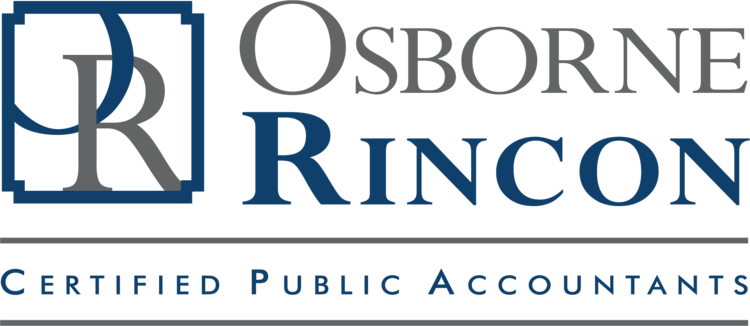By: Corry Hunter, Osborne Rincon CPAs
Staying home has become our new norm these days – and whether you are home to stop the spread of COVID-19 or because you need to be there with your kids while schools are closed –Congress offers some help. The Consolidated Appropriations Act, 2021, extends the credit for paid sick and family leave.
Originally, the Families First Coronavirus Response Act was for the period of April through December 2020. The extended credit now covers qualified sick leave and family leave wages paid through March 31, 2021. Equivalent credits are available to self-employed individuals.
Employers with fewer than 500 employees can claim refundable credits against the employer's portion of the Social Security tax for each calendar quarter on its employment tax return. They do this by reducing their federal employment tax deposits on Form 941 or they can fund qualified wages by requesting an advance payment of the credit by filing Form 7200.
The employer must include qualified leave wages on Form W-2. Additionally, employers must receive written substantiation from the employee. The IRS website has an FAQ section for employers wanting to claim this credit.
For an employee who is unable to work because of COVID-19 quarantine or has COVID-19 symptoms and is seeking a medical diagnosis, employers may receive a refundable sick leave credit of up to 100% of the employees pay (capped at $511 per day and $5,110 in the aggregate for up to 80 hours).
For an employee who is caring for someone with COVID-19 or is caring for a child because their school or child care facility is closed, employers may claim a credit for two-thirds of the employee's regular rate of pay (capped at $200 per day and $2,000 in the aggregate for up to 80 hours).
After using the sick leave credit, for an employee who is unable to work because of a need to care for a child, employers may receive a refundable credit equal to two-thirds of the employee's regular pay (capped at $200 per day or $10,000 in total). Up to 10 weeks of qualifying leave can be counted towards the child care leave credit.
Eligible employers are entitled to an additional tax credit based on costs to maintain health insurance coverage for the eligible employee during the leave period.
Talk to your tax or business advisor if you need additional assistance, or call Osborne Rincon at (442) 307-5512.
